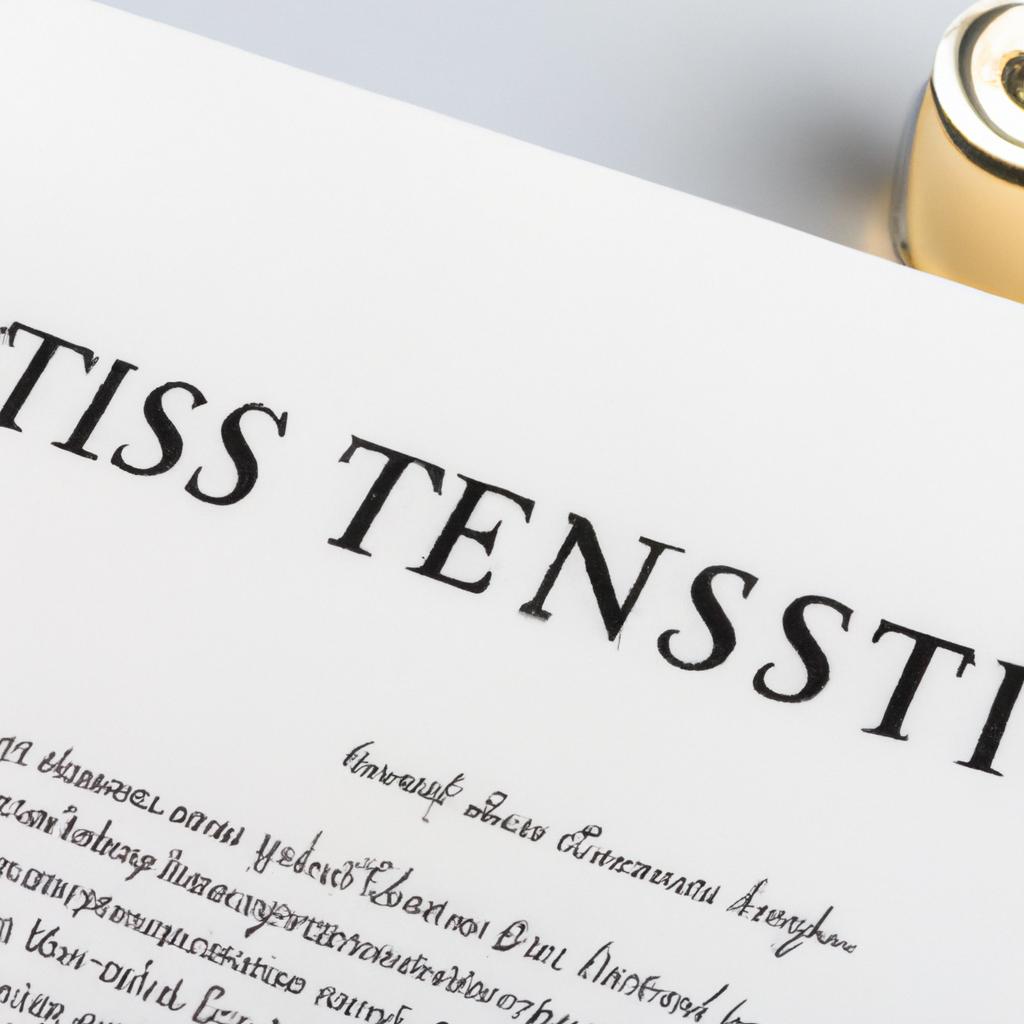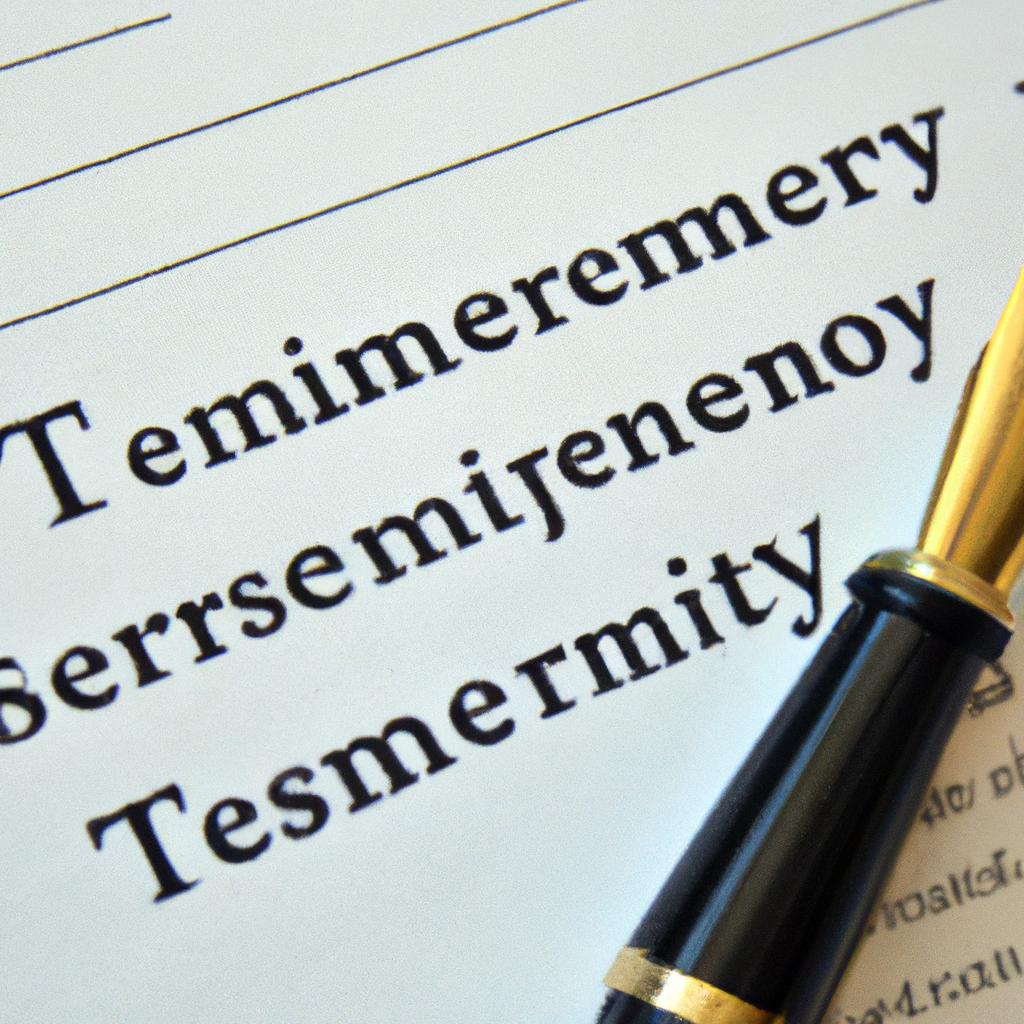In the intricate realm of estate administration, the issuance of letters testamentary stands as a pivotal moment in the process of probate. As experienced practitioners in the field of estate planning, probate, elder law, Wills, and trusts, the Morgan Legal Group in New York City is well-versed in navigating the complexities that surround the granting of such important legal documents. In this article, we delve into the significance, requirements, and implications of letters testamentary, shedding light on their essential role in the distribution of a decedent’s assets.
Understanding the Purpose and Importance of Letters of Testimentary
Letters of Testimentary are legal documents obtained through the probate court that grant a named individual the authority to act as the executor or personal representative of a deceased person’s estate. These letters serve as official proof that the executor has the legal right to handle the decedent’s final affairs, such as distributing assets to beneficiaries and paying off debts. Without these letters, the executor has no legal authority to carry out these responsibilities.
It is crucial to understand the purpose and importance of Letters of Testimentary for several reasons:
- Legal Authority: They provide the executor with the legal authority to act on behalf of the estate.
- Creditor Notification: Creditors must be notified of the death and given the opportunity to make any claims against the estate.
- Asset Distribution: The executor can distribute assets to beneficiaries according to the decedent’s wishes or state law.

The Process of Obtaining Letters of Testimentary in New York
Obtaining Letters of Testimentary in New York is a crucial step in the probate process. These letters, also known as Letters Testamentary, grant an individual the legal authority to act as the executor of a deceased person’s estate. To begin the process of obtaining Letters of Testimentary, the following steps must be taken:
- File a petition with the Surrogate’s Court
- Provide a death certificate and the original Will
- Obtain consent from all interested parties
- Appear at a hearing before the Surrogate’s Court Judge
Once the Letters of Testimentary are issued, the executor has the authority to manage the deceased person’s assets, pay outstanding debts, and distribute the remaining assets to the beneficiaries according to the terms of the Will. It is important to seek guidance from an experienced estate planning attorney, like those at Morgan Legal Group, to ensure that the process is completed accurately and efficiently.

Key Considerations When Drafting Letters of Testimentary
When drafting letters of testamentary, it is crucial to consider the following key factors to ensure that the document is accurate, legally sound, and serves its intended purpose:
- Proper Identification: Clearly identify the deceased individual and provide accurate information about their estate, assets, and beneficiaries.
- Clarity of Language: Use clear and concise language to avoid any ambiguity or confusion regarding the wishes and intentions of the deceased.
- Appointment of Executor: Clearly state the appointment of an executor or personal representative to carry out the wishes of the deceased and manage the estate.
Additionally, it is important to include detailed instructions for the distribution of assets, payment of debts, and any other specific requests of the deceased individual. By carefully considering these key factors, you can draft a comprehensive and legally valid letter of testamentary that accurately reflects the wishes of the deceased and facilitates the probate process effectively.

Best Practices for Executing Letters of Testimentary
When executing letters of testimentary, it is crucial to follow these best practices to ensure the process runs smoothly and efficiently:
- Thoroughly review the will: Before proceeding with the distribution of assets, carefully review the contents of the will to understand the deceased’s wishes.
- Obtain necessary documents: Collect all relevant legal documents, including death certificates and any other required paperwork, to support the validity of the will.
- Communication with beneficiaries: Keep beneficiaries informed throughout the process to manage expectations and avoid potential disputes.
Additionally, it is essential to work closely with legal professionals who specialize in estate planning to ensure compliance with state laws and regulations. By adhering to these best practices, you can navigate the complexities of executing letters of testimentary with confidence and diligence.
| Beneficiary Communication | ✔ |
| Legal Document Review | ✔ |
Q&A
Q: What exactly are letters of testamentary?
A: Letters of testamentary are legal documents issued by a court that authorize an executor to administer the estate of a deceased person.
Q: Who can obtain letters of testamentary?
A: Typically, the executor named in the deceased’s will can obtain letters of testamentary from the court.
Q: What is the purpose of letters of testamentary?
A: The purpose of letters of testamentary is to give the executor the legal authority to gather and distribute the deceased’s assets according to their will.
Q: Are letters of testamentary necessary?
A: Yes, letters of testamentary are necessary to ensure that the executor has the legal authority to carry out their duties and responsibilities in administering the estate.
Q: What happens if someone dies without a will and letters of testamentary?
A: If someone dies without a will and letters of testamentary, the court will appoint an administrator to administer the estate according to state laws.
Q: How long are letters of testamentary valid?
A: Letters of testamentary are valid until the estate has been fully administered and the executor’s duties have been completed.
Insights and Conclusions
In conclusion, letters of testamentary are a crucial legal document that authorizes an executor to distribute the assets of a deceased person’s estate according to their wishes. By understanding the process of obtaining and using these letters, individuals can ensure a smooth and efficient transfer of assets. Whether you are navigating the estate planning process or acting as an executor, having a clear understanding of letters of testamentary is essential. If you have any questions or require further guidance, be sure to consult with a legal professional. Thank you for reading!

